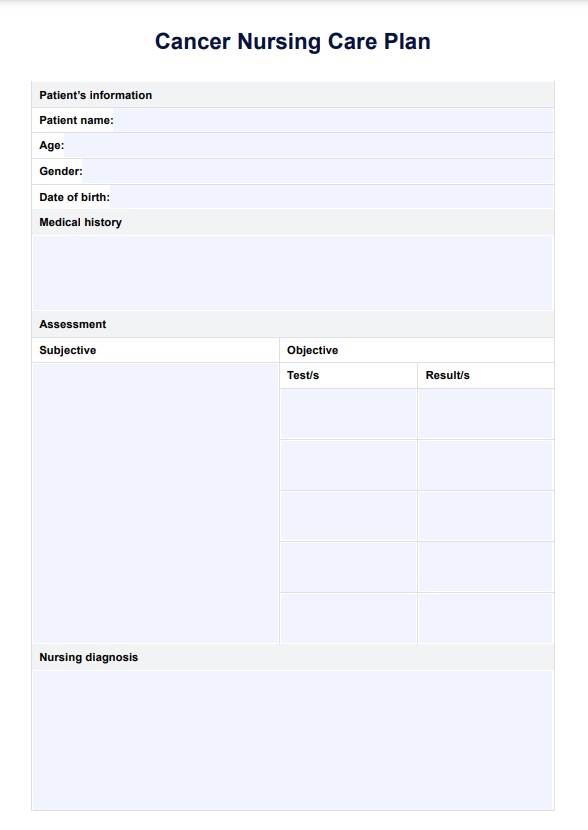To create a Cancer Nursing Care Plan Template, outline the key components: patient assessment, nursing diagnosis, goals and outcomes, interventions, rationale, and evaluation. Ensure the template is structured to guide nurses through each step, from initial assessment to ongoing care adjustments.

Cancer Nursing Care Plan
Access our comprehensive Cancer Nursing Care Plan Template for efficient patient care management.
Cancer Nursing Care Plan Template
Commonly asked questions
Nurses use Cancer Nursing Care Plan Templates to develop individualized care plans for cancer patients. They guide through the assessment, diagnosis, intervention, and evaluation, ensuring comprehensive and personalized patient care.
A Cancer Nursing Care Plan Template is typically created by experienced oncology nurses or healthcare professionals specializing in cancer care. A multidisciplinary team can also develop it collaboratively to encompass various cancer treatment and patient support aspects.
EHR and practice management software
Get started for free
*No credit card required
Free
$0/usd
Unlimited clients
Telehealth
1GB of storage
Client portal text
Automated billing and online payments











